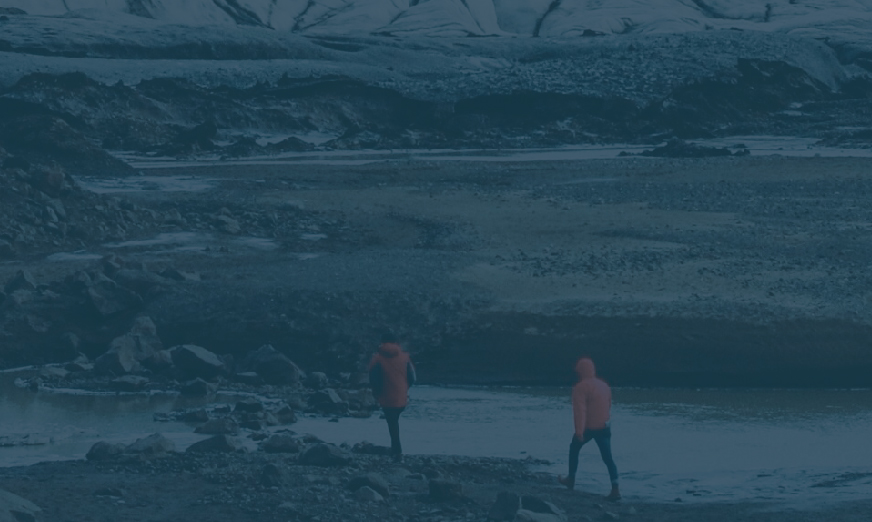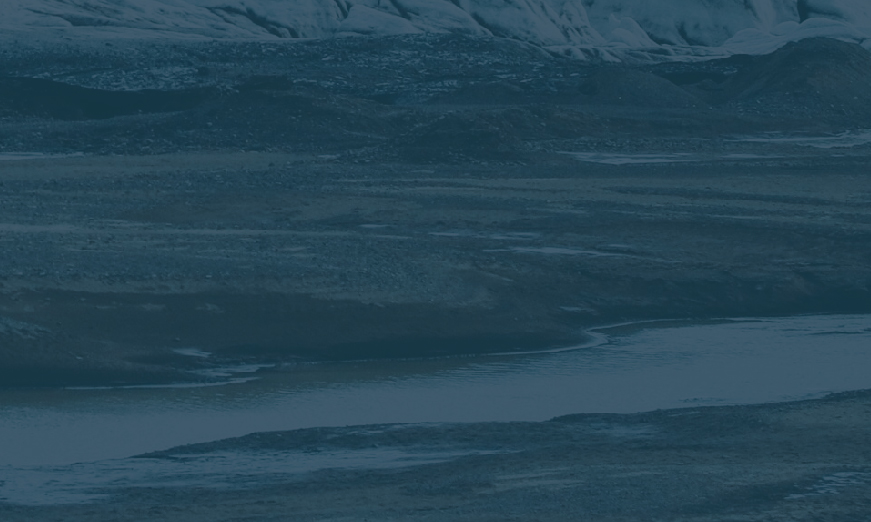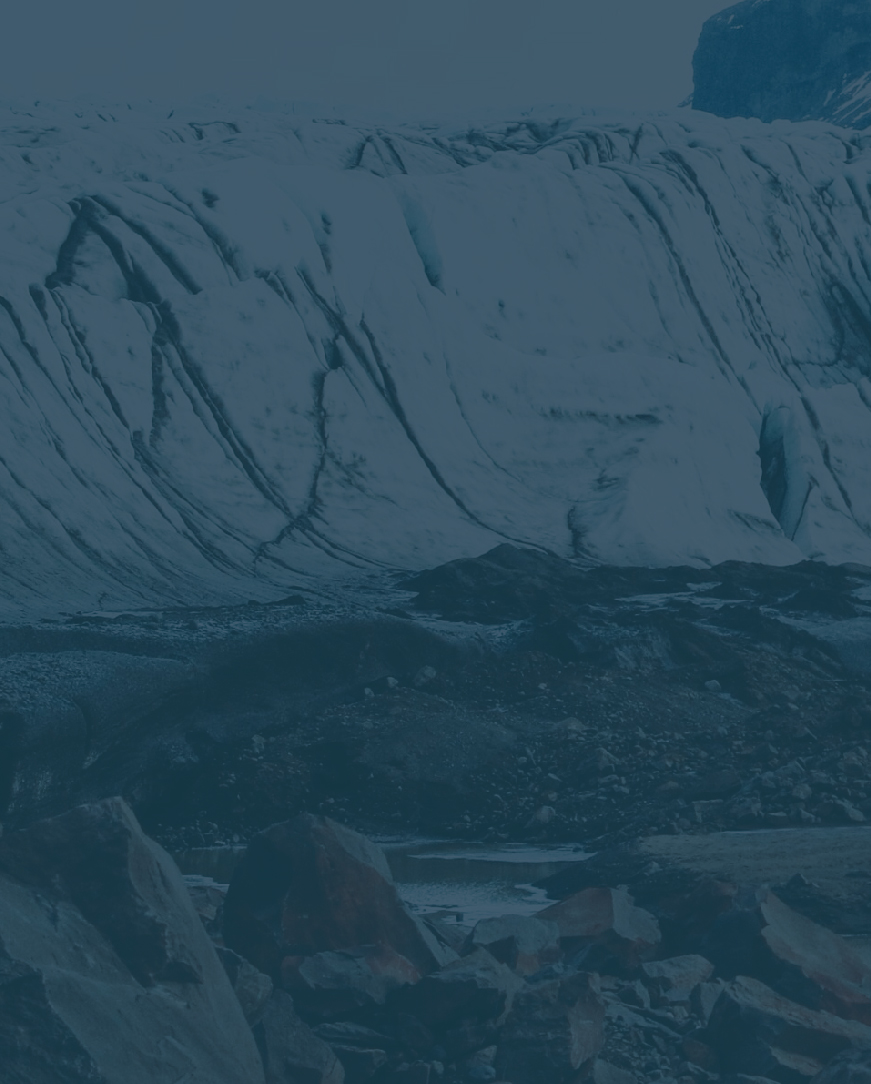
CLIMATE SOLUTIONS NEED EQUITABLE APPROACHES
AGU's position on climate intervention research
A "moonshot" that needs global oversight and local input
The Urgent Priority of a Healthy Climate Requires Enhanced Climate Intervention Research and Community Engagement” is the most recent update of AGU’s position, drafted by a panel of experts with input from the global scientific community and approved in April 2023.
Read AGU's Position Statement
What is an Ethical Framework for Climate Intervention?
AGU Releases White Paper on Climate Intervention
As the global threat of climate change forces society to consider options for managing and abating its impacts, a robust body of scientific evidence and an ethical framework should guide these decisions. On 1 June 2022, AGU released a whitepaper describing its plans to convene a panel of global experts to begin this development.
These ethical framework principles will focus on climate intervention in general, but with distinction between carbon dioxide removal (CDR), solar radiation management (SRM), and other climate-altering technologies. These principles will focus solely on the ethics of the research, experimentation and deployment of such measures, not the development of policy around the measures.
AGU is committed to ensuring that research on climate intervention strategies is inclusive, representative and just; does not make deployment inevitable; and does not undermine efforts to reduce carbon emissions. We are committed to ensuring public participation in the development of ethical framework decision-making processes.
Read the Whitepaper
Event Schedule
2024 Events
21 October – 1 November 2024
16th COP on Biological Diversity
Cali, Colombia
11-22 November 2024
2024 UNFCCC Climate Change Conference (COP29)
Baku, Azerbaijan
- Ethical Horizons: Navigating Climate Intervention and Solutions with Care (Ocean Pavilion, 16:30-17:30, 14 Nov.)
- Debating Marine Carbon Dioxide Removal: Balancing Challenges, Risks, and Future Needs (Ocean Pavilion, 15:00-16:00, 19 Nov.)
- Three COPs, One Ocean (UNFCCC Side Event, 18:30-20:00, 20 Nov.)
9-13 December 2024
AGU Annual Meeting
Washington, DC
- Poster: GC11F – Advancements in Climate Intervention Research Technologies, Policies, and Practices (8:30-12:20, 9 Dec)
- Oral Session: U24A Ocean Negative Carbon Emission Approaches for Mitigating Climate Change: Mechanisms, Practices, and Governance (16:00-17:30, 10 Dec.)
- Union Session: U24A-07 Proposed Ethical Framework for Climate Intervention Research (17:18-17:30, 10 Dec.)
- Town Hall: TH53D – Presenting the World Climate Research Programme’s Lighthouse Activity for Research on Climate Intervention: Identifying Goals, Timelines, and Outcomes and Obtaining Community Feedback (12:30-13:30, 13 Dec.)
Past Events
12 December 2023
AGU Annual Meeting
Town Hall on the Ethical Framework (TH23N)
1:00 – 2:00 p.m. PT, 2010 – Moscone West
San Francisco, CA
3 December 2023
2023 UNFCCC Climate Change Conference (COP 28)
Panel Discussion on the Ethical Framework
Watch Now
23-27 October 2023
WCRP Open Science Conference 2023
Kigali, Rwanda
28-29 September 2023
Solar Geoengineering Futures: Interdisciplinary Research to Inform Decisionmaking
Washington, DC, USA
1-20 July 2023
The 28th General Assembly of IUGG
Berlin, Germany
26 June - 2 July 2023
68th IRAS Summer Conference
(Institute on Religion in an Age of Science)
New Hampshire, USA
26-30 June 2023
Sustainability Research & Innovation Conference
Panama
12-15 June 2023
Climate and Health for Africa
Washington, DC USA
5-15 June 2023
UNFCCC Bonn Climate Change Conference
23-28 April 2023
EGU General Assembly
Vienna, Austria
22-24 March 2023
UN 2023 Water Conference
New York
Meet our panel of experts
Meet the ETHICAL FRAMEWORK ADVISORY BOARD
Ethical Framework Principles for Climate Intervention Research
In October 2024, AGU issued its report featuring five principles suggested for researchers, funders, and policymakers.
Ethical Framework for Climate Intervention Advisory Board
Margaret Leinen
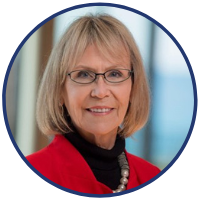
Babatunde Abiodun

His expertise is in atmospheric model developments and applications. His research interest focuses on regional climate issues, including climate modelling, climate variability and change, land-atmosphere interaction, and solar radiation management. He has led a wide range of projects on weather and climate extremes, seasonal forecasting, climate change projections, impacts of geoengineering, and building climate resilience at regional scale and local scales.
Babatunde has published more than 90 peer-reviewed papers in international journals. He was a lead author in the Intergovernmental Panel on Climate Change 5th Assessment Report and a lead author in the Global Environment Outlook 6th Assessment Report. He has also served in the editorial board of Springer Nature Applied Sciences Journal, Advances in Statistical Climatology, Meteorology and Oceanography Journal, and the Progress in Earth and Planetary Science Journal.
Brad Ack

Brad currently serves as Executive Director and Chief Innovation Officer for Ocean Visions, a partnership of leading North American research and academic institutions and innovators, investors and practitioners of ocean restoration. Ocean Visions is working to build momentum for a new ocean-climate repair and solutions agenda; to unlock new intellectual and financial investments in ocean-climate solutions; to source, develop and scale innovations that repair and restore critical components of the ocean-climate system.
Previously Brad served as Senior Vice President, Oceans at WWF-US; Regional Director-Americas for the Marine Stewardship Council; and Executive Director of the Puget Sound Recovery Program in the State of Washington. He directed conservation programs for the Grand Canyon Trust and started his career in Latin America working on sustainable development around protected areas.
Mashael AlShalan
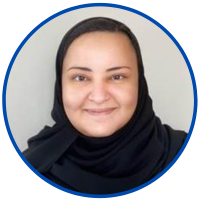
She has been involved in various international events and conferences, including side sessions at the UN Climate Change Conferences in Glasgow in 2021 and Sharm El-Sheikh in 2022. She holds a Masters Degree in International Relations and Affairs, Columbia University’s School of International and Public Affairs, NY, USA, and B.A. Language Interpretation and Translation, King Saud University, Riyadh, KSA.
Vinya Ariyaratne
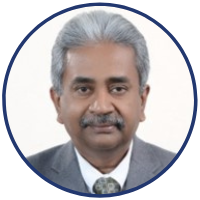
Working both at the grassroots level and at policy level, Dr. Ariyaratne has promoted popularization of science and technology in rural communities of Sri Lanka. Dr. Ariyaratne obtained Doctor of Medicine (M.D.) Degree from the De La Salle University, Philippines, and Master of Public Health (M.P.H.) degree from the Johns Hopkins University U.S.A., Master of Science M.Sc. and Doctor of Medicine (MD) in Community Medicine from University of Colombo, Sri Lanka. He was a Visiting Fellow at the Liverpool School of Tropical Medicine, U.K. and a Chevening Fellow at the Nuffield Institute of the Faculty of Medicine and Health of the University of Leeds.
In 2012, Dr. Ariyaratne was attached to the Heller School for Social Policy and Management of the Brandeis University U.S.A. as a Visiting Senior Lecturer and Feldman Engaged Scholar. In 2014, Dr. Ariyaratne received the Social Entrepreneur of the Year Award from the Schwab Foundation/World Economic Forum.
Paul Artaxo
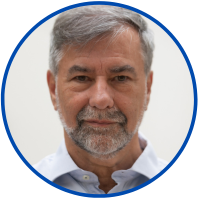
Paulo Artaxo has published more than 462 scientific papers, including 27 papers in the Science and Nature family of journals. He is a member of the Brazilian Academy of Sciences, the TWAS (The World Academy of Sciences), and is vice president of the São Paulo Academy of Sciences. He is vice president of the Brazilian Society for the Advancement of Sciences (SBPC). He received many prizes: Fellow of the American Association for the Advancement of Sciences (AAAS), the Earth Sciences Prize from TWAS in 2007, the Almirante Alvaro Alberto Prize in 2016, and the CONFAP Prize for Science and Technology in 2021, among others. He was nominated for the award from Clarivate Analytics as “Most Influential Researcher” in 2014, 2015, 2018, 2019, and 2020.
Araya Asfaw
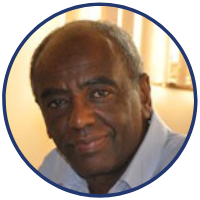
Currently, the Network consists of more than 40 members, of which Ethiopia has the largest share of about 40 percent. Dr. Asfaw earned his PhD in Physics, Master of Engineering and BSc in Mechanical Engineering from Howard University, Washington DC. He worked as a research scientist at various national laboratories in the US (including the National Institute of Standard and Technology, Center for Advanced Microstructure and Devices, Lawrence Livermore National Laboratory and the Advanced Light Source of Lawrence Berkeley National Laboratory) before joining the physics Department of Addis Ababa University in 1996.
He served as Dean of the Faculty of Science at Addis Ababa University for four years. As Dean, he also facilitated the transformation of the Geophysical Observatory and initiated the establishment of the Gullele Botanic Garden, a joint programme between Addis Ababa City Administration and Addis Ababa University.
Govindasamy Bala
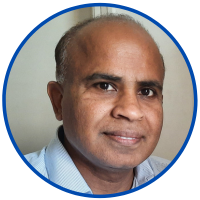
Miranda Boettcher
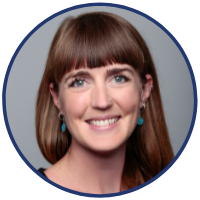
She is currently working on the German-government (BMBF)-funded project ASMASYS (Unified ASsessment framework for proposed methods of MArine CDR and interim knowledge SYnthesiS), developing a transdisciplinary assessment framework for marine carbon removal, with a focus on identifying political (in)feasibility frontiers. Additionally, Miranda is a member of the United Nations Joint Group of Experts on the Scientific Aspects of Marine Environmental Protection (GESAMP) Working Group 41: Ocean Interventions for Climate Mitigation.
She is currently an Earth System Governance Research Fellow. She was an Oxford Martin Visiting Fellow at the University of Oxford's Institute for Science, Innovation and Society in 2018, and a Visiting Researcher at the Australian-German Climate and Energy College at the University of Melbourne in 2019. She has previously worked as a Research Associate at the Institute for Advanced Sustainability Studies in Potsdam, Germany, Research Analyst for Foresight Intelligence in Berlin, Germany, an Investigator at the Mintz Group in San Francisco, USA, and a Graduate Researcher at the University of Heidelberg's Department of International Relations in Heidelberg, Germany.
Clara Boto
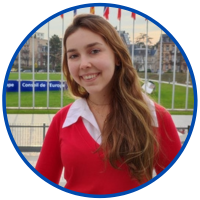
Clara is currently also on the Advisory Board of the Cambridge Centre for Climate Repair, a climate fellow with UNU-UNFCCC, a campaigner with World’s Youth for Climate Justice seeking an Advisory Opinion from the International Court of Justice, and a New European Voice on Existential Risk with the European Leadership Network. She holds a MSc in International Development and Public Policy, having written her thesis as a pedagogical public policy case study of deep-sea mining in Portugal, and a BSc in Business with focus in Creative Economy and Marketing, where she researched about sustainable fashion and the universities' lack of preparation to equip youth for sustainable development in Rio de Janeiro.
Antonio Busalacchi
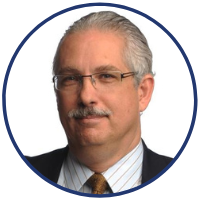
Ines Camilloni
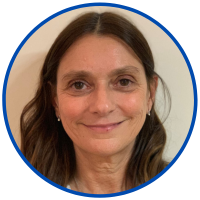
She has a PhD in Atmospheric Sciences from the University of Buenos Aires. Her research focuses on climate variability and change in South America, especially in cities and climate change and in the regional potential impacts of solar radiation modification. She has authored several peer-reviewed scientific journal articles, book chapters and books. She has participated in and coordinated many national and international research projects related to these subjects. She has been Lead Author of the IPCC AR5-WG1 and SR15 reports and Review Editor of the IPCC AR6-WG1.
Michael Conathan

Prior to joining Aspen in 2018, he launched the ocean policy program at the Center for American Progress after spending five years supporting Senator Olympia Snowe (R, ME) as the lead staffer on the U.S. Senate Subcommittee on Oceans, Atmosphere, Fisheries, and Coast Guard. Mike prioritizes relationships, listening, and mediation in his work which centers on the belief that compromise and collaboration are fundamental to durable policy solutions.
Mike holds an M.A. in Marine Affairs from the University of Rhode Island and a B.A. in English Literature from Georgetown University and now lives in South Portland, Maine with his lobster-catching wife, Dungeons & Dragons-obsessed teenage son, and frisbee-chasing chocolate lab.
Chris Field
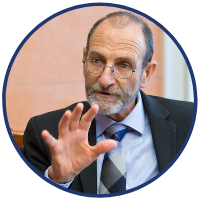
Field was the founding director of the Carnegie Institution’s Department of Global Ecology, a position he held from 2002 to 2016. He was co-chair of Working Group II of the Intergovernmental Panel on Climate Change from 2008-2015, where he led the effort on the IPCC Special Report on “Managing the Risks of Extreme Events and Disasters to Advance Climate Change Adaptation” (2012) and the Working Group II contribution to the IPCC Fifth Assessment Report (2014) on Impacts, Adaptation, and Vulnerability.
His widely cited work has earned many recognitions, including election to the US National Academy of Sciences, the American Academy of Arts and Sciences, the Max Planck Research Award, the Roger Revelle Medal, and the Japan Prize.
Karen Florini
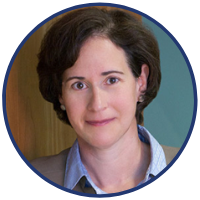
Prior to joining Climate Central in 2017, Karen served as Deputy Special Envoy for Climate Change at the State Department. Previously she spent more than two decades at Environmental Defense Fund, working both on environmental health and on climate change.
She earned a law degree at Harvard, where she was Editor-in-Chief of the Harvard Environmental Law Review, but now regards herself as a recovering lawyer. As an undergraduate at Oberlin College, she dual-majored in biology and environmental policy.
Stephen Gardiner
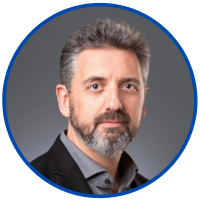
Stephen Hammer
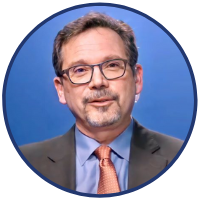
Prior to his current role he served as Manager, Climate Policy for the World Bank Group, where he led a team of 60 scientists, economists, technical experts, and consultants focused on frontier research on climate change and development topics and the provision of climate-related advisory services to clients and Bank teams.
Before joining the World Bank, Dr. Hammer was a member of the faculty at MIT’s Department of Urban Studies and Planning (DUSP), and prior to that, he taught at Columbia University’s School of International and Public Affairs, where he founded and directed the Urban Energy Program. Dr. Hammer holds a PhD from the London School of Economics.
Bruce Hewitson

Research interests span a range of issues on regional climate change, including climate modeling, downscaling, the interface of climate science and society, and capacity building of young scientists and for decision makers. A special interest is around individual and institutional ethics and values in responding to climate change in the context of the global north-south dynamic.
Bruce was a coordinating lead author in the Intergovernmental Panel on Climate Change 3rd, 4th, 5th Assessment Reports and lead author on the IPCC 6th Assessment Report. He has held a range of international responsibilities and currently co-chairs the World Climate Research Program’s core project on Regional Information for Society. He has led a wide range of projects focused on new analytical methods, climate change and cities, regional climate change projections, seasonal forecasting, climate uncertainty, and the intersection of climate information and ethics.
Bruce is currently focusing on new ways to enhance the usability of regional climate information for decision makers in contrasting contexts.
Elisabeth Holland

She recently served as Norway-Pacific Chair in the Oceans and Climate Change, a joint appointment of USP and the University of Bergen (UiB) based at USP’s Laucala Bay campus in Fiji. Professor Holland was USP’s Professor of Climate Change from 2012-2019. Professor Holland was the first ecological scientist at the National Centre for Atmospheric Research in Boulder, Colorado where she became a senior scientist and interdisciplinary research leader. Professor Holland was a founding member of the Max Planck Institute for Biogeochemistry in Jena, Germany, the 17th Max Planck Institute founded following German reunification.
Professor Holland brings more than 30 years of climate change research experience to the Pacific. She served as an author in all six cycles of the Intergovernmental Panel on Climate Change reports, including the recent Special Report on the Ocean and Cryosphere in a Changing Climate. Elisabeth’s current research focuses on Pacific ocean climate interactions and the science policy interface. She supports the empowerment of Pacific students and communities to build climate and disaster resilient futures. Professor Holland has a profound understanding of the climate risks facing the people and cultures of the Pacific Ocean and Islands.
Marion Hourdequin

Professor Hourdequin is President of the International Society for Environmental Ethics (ISEE) and Associate Editor for Environmental Ethics. She recently served on a National Academy of Sciences study committee focused on approaches to solar geoengineering research and research governance. She earned her Ph.D. in philosophy at Duke University (2005) and her undergraduate degree in ecology and evolutionary biology at Princeton University (1995).
Anna-Maria Hubert
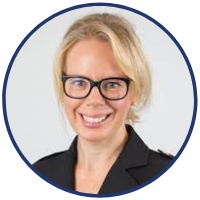
Anna-Maria has published widely on the topic of the regulation and governance of climate engineering. From 2015 to 2018, Anna-Maria was the lead on the Geoengineering Research Governance Project (GRGP), a joint initiative of the University of Calgary, IASS-Potsdam and the University of Oxford. The project sought to enhance understanding about the complex issues posed by climate engineering techniques, and to analyse the changes required in governance and legal frameworks necessary to enable effective oversight in this space in line with accepted principles. A key output from this project with the development of a draft Code of Conduct for Responsible Geoengineering Research (2017).
From 2013 to 2015, Anna-Maria worked at the Institute for Advanced Sustainability Studies (IASS) in Potsdam, Germany, as part of an interdisciplinary research group studying the implications climate engineering interventions. She has acted as a consultant and provided information and advice to governments, treaty bodies and intergovernmental organisations, NGOs, and scientific institutions on this topic. This included serving as advisor to IUCN at the meetings of the 1972 Convention on the Prevention of Marine Pollution by Dumping of Wastes and Other Matter and its 1996 Protocol, which led to the adoption of an amendment on marine geoengineering in 2013.
Peter Irvine

Penehuro Fatu Lefale
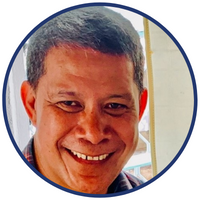
As Director of LeA International Consultants (NZ), Lefale is the Senior Climate Policy advisor to the Government of Tokelau, where he co-developed the Living with Change Strategy and Implementation Plans that guide Tokelau’s climate program. He is a Professional Member of the American Meteorological Society and the Royal Society of New Zealand, and has authored a number of papers on climate science and climate policy from a Small Islands perspective.
Amparo Martínez-Arroyo
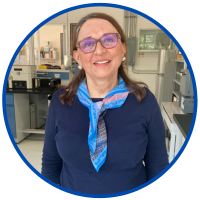
She has extensive experience in the application of scientific knowledge to public policies and decision-making processes in Mexico, where she has held positions as Director of the UNAM Center for Atmospheric Sciences from 2009 to 2013 and General Director of the National Institute of Ecology and Climate Change from 2013 to 2021. For eight years she participated as a focal point in the IPCC and as a delegate to the COPs of the UNFCCC, representing Mexico. She is currently a member of the Scientific-Policy Advisory Committee of the Inter-American Institute for Global Change Research. Her current interests are related to the construction of science-based regional strategies in the face of global change, with broad and inclusive participation of local communities.
Taylor McKie

Taylor McKie (early-career Advisory Board member) is a Ph.D. Candidate at the Scripps Institution of Oceanography at UC San Diego. She studies physical oceanography and her research focuses on small-scale upper ocean physical dynamics and how climate change impacts their behavior. Taylor has participated at COP27 and served as invited panelist in several side events. She is a recipient of the National Science Foundation Graduate Research Fellowship and has been inducted into the Edward Alexander Bouchet Graduate Honor Society. Taylor received her Bachelor’s degree in Environmental Engineering from the Georgia Institute of Technology. Outside of research, Taylor is known for her work in university climate action, environmental justice and advocacy. She hopes to pursue a career in climate policy post-graduation and contribute to efforts driving mitigation strategies and increasing climate resilience within communities most impacted.
Craig McLean
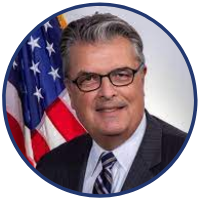
Craig McLean, is the recently retired director for NOAA’s Office of Oceanic and Atmospheric Research (OAR), which is responsible for NOAA’s research enterprise, including laboratories and programs across the country. Prior to this position, McLean served as deputy assistant administrator for OAR’s Programs and Administration, as executive officer of the National Ocean Service, and was the founding director of NOAA's Office of Ocean Exploration.
McLean served in uniform for nearly 25 years, retiring from NOAA's Commissioned Corps in the grade of captain. He served aboard hydrographic, oceanographic, and fisheries research ships. McLean also served as NOAA’s acting Chief Scientist for the past five years, and is a past U.S rep to Intergovernmental Oceanographic Commission of UNESCO.
McLean is also an attorney and has practiced marine resource law for NOAA. He has been awarded the Department of Commerce Silver and Bronze Medals, the NOAA Corps Commendation Medal, and Special Achievement Medal. He is a frequent speaker on ocean related subjects, drawing on his diverse NOAA career experience in fisheries, coastal and marine area management, directing research, law, and both surface and submerged marine operations. He is a past-president and chairman of the Sea-Space Symposium.
Axel Michaelowa

Axel is currently serving as member of the Board of the constituency of Research and Independent NGOs observing the UNFCCC negotiations, as well as the Executive Committee of the Adaptation Benefits Mechanism, where he is vice chair of the methodology panel. Moreover, he is a member of the roster of experts of the Article 6.4 Supervisory Body. Axel was lead author on international mitigation policies in the 4th and 5th IPCC Assessment Reports. Between 2006 and 2013, Axel was on the CDM Registration and Issuance Team for the CDM Executive Board and evaluated over 175 CDM projects. He serves on the editorial boards of the peer reviewed journals “Climate Policy”, “Climate and Development” and “Greenhouse Gas Measurement & Management."
Axel is one of the leading experts in the field of international climate policies, market mechanism design and the UNFCCC process and has over 400 academic publications on these issues. He has participated in UNFCCC negotiations since COP 1 in 1995 and provided related support to the governments of Honduras, Mexico, Morocco, Qatar, Sweden, Tunisia and the UAE. He has done capacity building in over 40 developing countries, ranging from Algeria to Yemen, with a focus in the Middle East and North Africa, South Asia and South-East Asia. "
Aasima Kamal Mowni

Furthermore, Aasima brings valuable research experience from her time at the International Center for Diarrhoeal Disease Research, Bangladesh (icddr,b), where she focused on understanding the complex relationship between climate change and public health. In addition to her academic expertise, she brings over three years of teaching experience in extracurricular activities at Playpen School. Aasima is deeply committed to addressing the ethical challenges posed by climate change through creative and innovative approaches.
Helene Muri
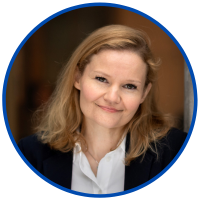
Muri has contributed to the assessment reports of Working Groups I and III of the Intergovernmental Panel on Climate Change (IPCC). She has a PhD in climate physics from the University of Oxford (2009) and BSc in Meteorology from the University of Reading, UK. After a post-doc at Université catholique de Louvain in Belgium, she joined the University of Oslo, Norway as a researcher in climate intervention, before joining NTNU in 2018.
Carlos Nobre

He was director of Center of Weather Prediction and Climate Studies (CPTEC-INPE), and the creator of Center for Earth System Science (CCST-INPE) and of the National Center for Monitoring and Early Warning of Natural Disasters (CEMADEN). He was National Secretary for R&D Policies at Brazil’s Ministry of Science, Technology & Innovation and President of Brazil’s Agency for Post-Graduate Education (CAPES). He is co-chair of the Science Panel for the Amazon (www.theamazonwewant.org) and the director of the Amazonia 4.0 project to promote a standing forest bioeconomy for the Amazon (www.amazonia4.org). He was International Secretary of the American Geophysical Union (AGU).
He is a foreign member of the US National Academy of Sciences and the Royal Society, and member of the Brazilian Academy of Sciences and the World Academy of Sciences. He was awarded several prizes including the Volvo Environmental Prize and the AAAS Science Diplomacy Award.
Daniel O'Connor

The Research Environment team works to ensure that all of the research that Wellcome funds is open, engaged, ethical, efficient and equitable. The team leads Wellcome’s activities in research culture, open research and open access, bioethics, the social and cultural impact of research, researcher-led engagement, and connecting Wellcome’s community of researchers.
Franklin Opijah
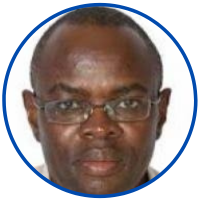
Dr. Opijah has a distinctive interest in tropical weather/climate and prediction on all spatiotemporal scales; ensemble prediction system techniques; weather/climate transforms consequential to regional and global forcing, land use/cover change, urbanisation and surface heterogeneity, with the goal of improving the predictability, uptake, and application of weather and climate information in Eastern Africa.
Silvia Peppoloni
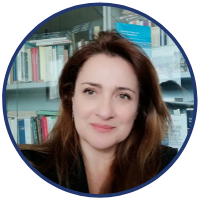
Professor at the University of Rome "Sapienza" and Viterbo "Tuscia" (2008-2011), she is founding member and Secretary General of the International Association for Promoting Geoethics, Director of the School on Geoethics and Natural Issues, Councillor of the International Union of Geological Sciences (2018-2022), Chair of the Ethical Advisory Board of the Integrated Carbon Observation System, Councillor of the Geological Society of Italy, and Chair of the Commission on Geoethics of the International Union of the Geological Sciences.
Work package/task leader and member of advisory boards in European projects, editor of volumes on geoethics, she is Editor in Chief of the SpringerBrief in Geoethics and of the Journal of Geoethics and Social Geosciences. She has been awarded in Italy with prizes for science communication and natural literature. Among her publications, she has written the chapter on Ethics for the Elsevier Dictionary of Geology.
Christopher Preston
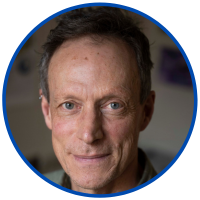
Christopher has written for The Atlantic, Smithsonian Magazine, Discover, The Conversation, Aeon, Slate.com, and The BBC. He gives talks in state parks, libraries, and breweries across Montana to audiences interested in conservation and technology. In early 2023, he won an annual award from the International Society for Environmental Ethics for his work as a public philosopher.
Akossiwa Quashie
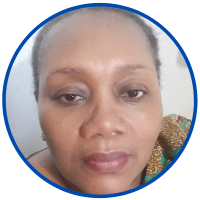
WASCAL is a large-scale research-focused Climate Service Centre designed to help tackle this challenge and thereby enhance the resilience of human and environmental systems to climate change and increased variability. It does so by strengthening the research infrastructure and capacity in West Africa related to climate change and by pooling the expertise of ten West African countries and Germany. The WASCAL Competence Centre, a newly established institute in West Africa, carries out research and provides science-based advice to policymakers and stakeholders on climate change impacts, mitigation, and adaptation measures.
Alan Robock
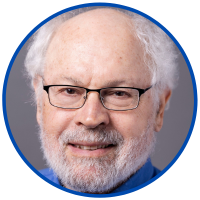
Prof. Robock has published more than 500 articles, including more than 285 peer-reviewed papers. His areas of research include climate intervention (geoengineering), and the climatic effects of nuclear war and volcanic eruptions. He is the co-founder and co-leader of the Geoengineering Model Intercomparison Project (GeoMIP). He serves as Editor of Reviews of Geophysics, the most highly-cited journal in the Earth Sciences. He is a Fellow of the American Geophysical Union, the American Meteorological Society (AMS), and the American Association for the Advancement of Science, and a recipient of the AMS Jule Charney Medal. Prof. Robock was a Lead Author of the Fifth Assessment Report of the Intergovernmental Panel on Climate Change.
Dominic Roser
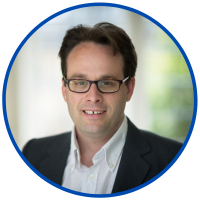
Vladimir Ryabinin
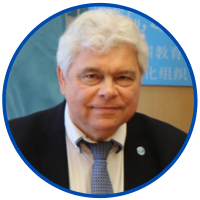
Peter Schlosser
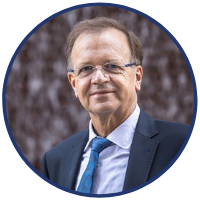
Professor Schlosser is one of the world’s leading earth scientists, with expertise in the Earth’s hydrosphere and how humans affect the planet’s natural state. He comes to ASU from Columbia University where he was the Maurice Ewing and J. Lamar Worzel Professor of Geophysics and Chair of the Department of Earth and Environmental Engineering, Professor of Earth and Environmental Sciences, and the deputy director and director of research at the Earth Institute. He also was a member and the founding chair of the Earth Institute faculty and a member of the senior staff at the Lamont-Doherty Earth Observatory. His prior positions included a professorship at the University of Heidelberg and a visiting professorship at the University of Washington-Seattle. He is a member of the German National Academy of Sciences, an elected fellow of the American Association for the Advancement of Sciences, the American Geophysical Union, and the Explorers Club.
Benjamin Sovacool
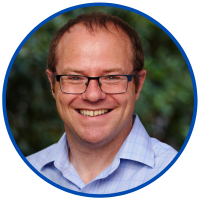
Professor Sovacool works as a researcher and consultant on issues pertaining to energy policy, energy justice, energy security, climate change mitigation, and climate change adaptation. More specifically, his research focuses on renewable energy and energy efficiency, the politics of large-scale energy infrastructure, the ethics and morality of energy decisions, designing public policy to improve energy security and access to electricity, and building adaptive capacity to the consequences of climate change. He was a Lead Author of the Intergovernmental Panel on Climate Change’s Sixth Assessment Report (AR6), published in 2022, and he serves on the Board on Environmental Change and Society for the National Academies of Sciences, Engineering, and Medicine in the United States. With much coverage of his work in the international news media, he is one of the most highly cited global researchers on issues bearing on controversies in energy and climate policy.
Ben Stanhouse
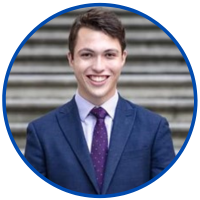
In his day job, he works as a Sustainability Consultant in London, building green businesses from the ground-up and helping public and private sector entities to enable the net-zero transition. Ben holds an MSc in Energy Systems from the University of Oxford, where his research focused on collective responsibility in scaling durable carbon sequestration, and a BSc in Earth Science from Imperial College London, where he graduated with the Governors' Prize.
Masa Sugiyama
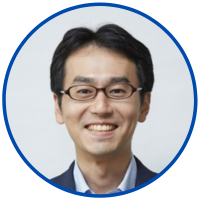
He is a lead author of the Working Group III’s contribution to the Sixth Assessment Report of the Intergovernmental Panel on Climate Change(IPCC). He is a member of Harvard SCoPEx (Stratospheric Controlled Perturbation Experiment) Advisory Committee, and is also a member of the Joint Group of Experts on the Scientific Aspects of Marine Environmental Protection (GESAMP) Working Group 41 Ocean Interventions for Climate Change Mitigation. His research areas include scenario analysis of climate and energy policy and governance of climate engineering from the public engagement perspective.
Jianhua Xu
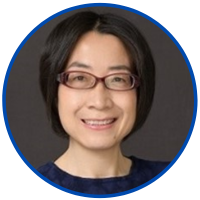
She has been doing research in the specific areas of regulation and governance and attitudes and behaviors in environmental and risk domains. In the area of regulation and governance, her focuses are on factors shaping the formation of regulations, the impacts of regulations, and policy design and evaluation; in the area of attitudes and behaviors, her focuses are on factors influencing environmental attitudes and behaviors, designing and evaluating policies driving the change in environmental attitudes and behaviors, and risk perception and communication.



